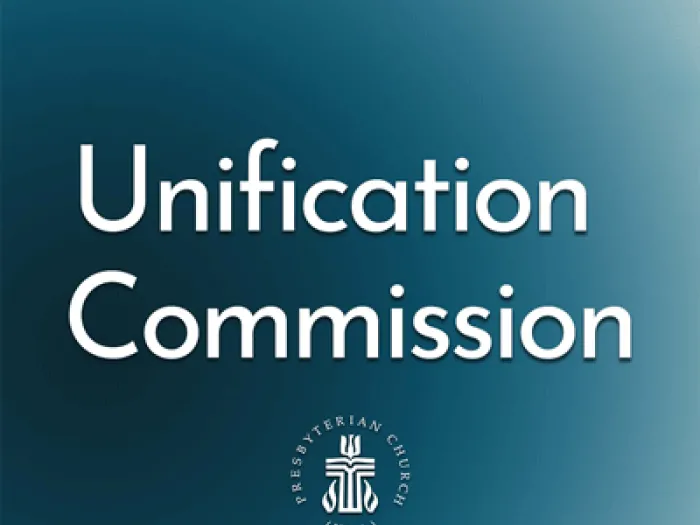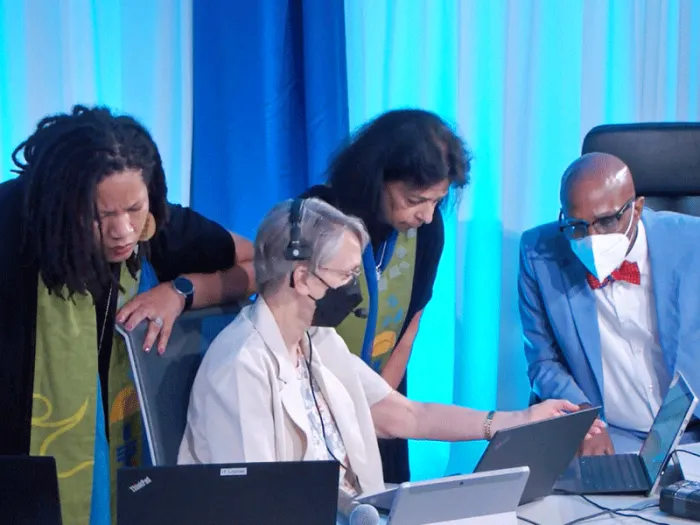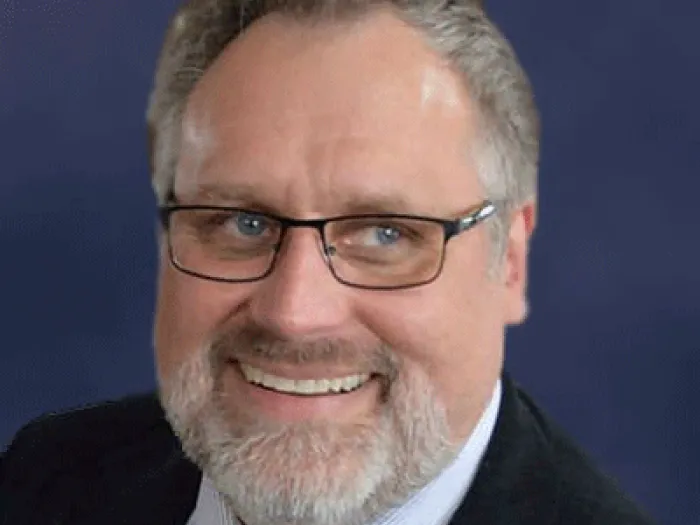PC(USA) statistics show a leveling off in membership decline
The number of new worshiping communities continues to climb

While the numbers are slightly lower, the Office of the General Assembly of the Presbyterian Church (U.S.A.) continues to show a leveling off in the decline of church membership. The newly released statistical report for 2019 shows a total membership of 1.3 million, compared to 1.4 million three years ago, but the annual decline in churches and active members is lower than in years past.
In 2019, the number of PC(USA) churches was 120 less than the year before and the number of active members is down 50,000 from 2018.
| 2016 | 2017 | 2018 | 2019 | |
|---|---|---|---|---|
| Total Churches | 9451 | 9304 | 9161 | 9041 |
| Active Members | 1,482,767 | 1,415,053 | 1,352,678 | 1,302,043 |
The Reverend Dr. J. Herbert Nelson, II, Stated Clerk of the General Assembly of the PC(USA), released a statement calling the latest report good news. He says the church is witnessing congregational transformation through innovative leadership, discipleship training, spiritual renewal, and contextual ministry implementation.
“We are no longer evangelizing on the motto ‘If you build it, they will come.’ Instead, we are learning that spiritual development and leadership training focused on discipleship is paramount to developing healthy congregations. Innovative training through Vital Congregations and 1001 New Worshiping Communities are assisting in discipleship training and church renewal efforts,” he said. “Another factor is that the PC(USA) did not have any church dismissals in 2019. This is a sign that we have stabilized previous membership loss in both congregation and member dismissals.”
While the number of youth professions of faith continues a steady decline, the number of overall professions of faith and reaffirmation is still higher than in 2016.
| 2016 | 2017 | 2018 | 2019 | |
|---|---|---|---|---|
| Youth Professions of Faith | 11,243 | 10,716 | 9,578 | 9,023 |
| Professions of Faith & Reaffirmations | 20,623 | 19,599 | 22,005 | 21,408 |
The statistical report also shows a gradual increase in new worshiping communities.
| 2016 | 2017 | 2018 | 2019 | |
|---|---|---|---|---|
| New Worshiping Communities | 114 | 144 | 158 | 176 |
Nelson says the church’s future growth is dependent on evangelizing immigrant communities.
“Church planting in immigrant communities is leading the way towards our current and future church growth. However, this area of potential growth is being stunted by marginalization. Many of these groups represent communities that received training from PC(USA) missionaries. Some of their faith perspectives are interwoven with cultural dynamics that are inconsistent with U.S.-born beliefs such as ordination of women, communal accountability, and dynamics of worship,” he said. “We must bear the hard question as to whether we will accept these communities into full membership rather than created categories that marginalize their participation in the PC(USA)."
Approximately 84 percent of the churches submitted data representing 92 percent of PC(USA) membership. The median presbytery has a membership of 5,981 persons. The average presbytery consists of 112 ministers, 53 churches, and four candidates.
Read the Stated Clerk’s full statement below.
We Celebrate Jesus’ Joy for the Church We Are Becoming
The Reverend Dr. J. Herbert Nelson, II
Stated Clerk of the General Assembly of the Presbyterian Church (U.S.A.)
For the first time in more than thirty years, the PC(USA) is not reporting membership losses. Our membership remains at 1.3 million. This is good news! We must celebrate while knowing that there remains work to be done.
We are witnessing congregational transformation and renewal through innovative leadership, discipleship training, spiritual renewal, and contextual ministry implementation.
We are no longer evangelizing on the motto “if you build it, they will come.” Instead, we are learning that spiritual development and leadership training focused on discipleship is paramount to developing healthy congregations. Innovative training through Vital Congregations and 1001 New Worshiping Communities are assisting in discipleship training and church renewal efforts. Another factor is that the PC(USA) did not have any church dismissals in 2019. This is a sign that we have stabilized previous membership loss in both congregation and member dismissals.
Training that encourages persons to share their faith as a public witness to the glory of God while inviting them into a communal love that addresses their contextual realities is at the core. Training in both evangelism and community building is working. This calls for us to be able to talk about our faith in effective ways while properly sharing the love of Jesus.
Our current future growth is dependent on evangelizing immigrant communities. And why? Our mission field is coming to the United States seeking both freedom and opportunity.
Church planting in immigrant communities is leading the way towards our current and future church growth. However, this area of potential growth is being stunted by marginalization. Many of these groups represent communities that received training from PC(USA) missionaries. Some of their faith perspectives are interwoven with cultural dynamics that are inconsistent with U.S.-born beliefs such as ordination of women, communal accountability, and dynamics of worship. We must bear the hard question as to whether we will accept these communities into full membership rather than created categories that marginalize their participation in the PC(USA). Furthermore, these Fellowships (as they are called) maintain the same historic marginalizations as experienced by other ethnic groups in past years. I, along with others, are acutely aware of serving in segregated presbyteries and synods until 1993. Let us not repeat this history!
We are not dying. … We are Reforming.
You may freely reuse and distribute this article in its entirety for non-commercial purposes in any medium. Please include author attribution, photography credits, and a link to the original article. This work is licensed under a Creative Commons Attribution-NonCommercial-NoDeratives 4.0 International License.




